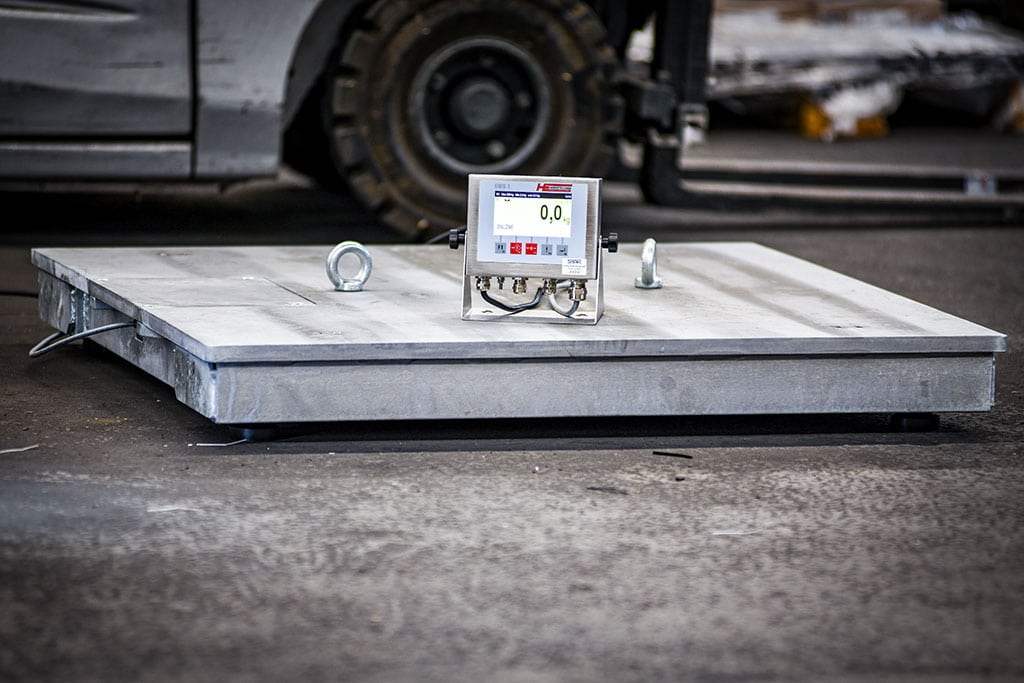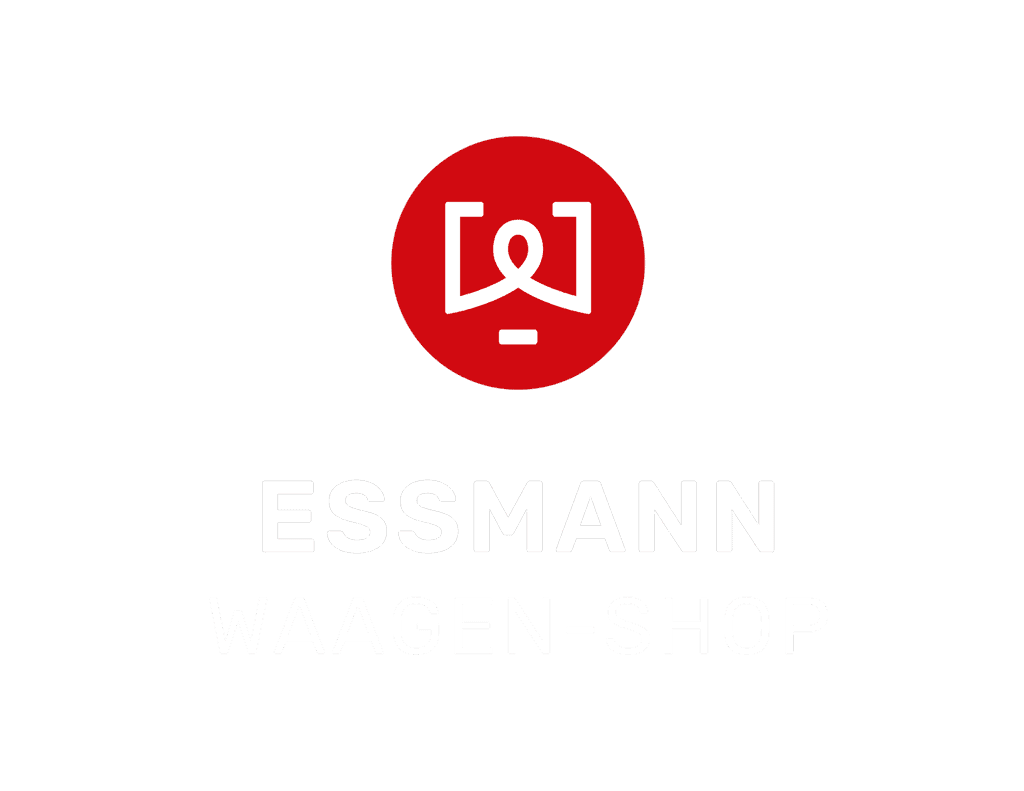Platform scales and floor scales are indispensable industrial scales for a wide range of industries. Whether in warehouses, production, the mail order business or municipal waste disposal companies – goods, parcels or materials need to be weighed precisely everywhere. The robust scales with a large weighing platform enable heavy or bulky goods to be weighed reliably and efficiently.
In this guide, you will find out what distinguishes platform and floor scales, what the differences are, what applications there are and which criteria are decisive when making your choice.
Definition – What are platform scales and floor scales?
Platform scales are scales with a flat weighing platform. They are available in compact versions, such as parcel scales for shipping, through to large industrial models for pallets and machines. They are often portable, sometimes stationary, and usually have a separate display unit.
Floor scales are particularly robust platform scales that stand directly on the floor or are flush-mounted. They usually have a larger platform and a very high load capacity. They can be accessed with pallet trucks or forklift trucks and are ideal for heavy, bulky loads.
Difference: Every floor scale is a platform scale, but not every platform scale is a floor scale. Platform scales cover a broader spectrum – from small shipping scales to heavy pallet scales.
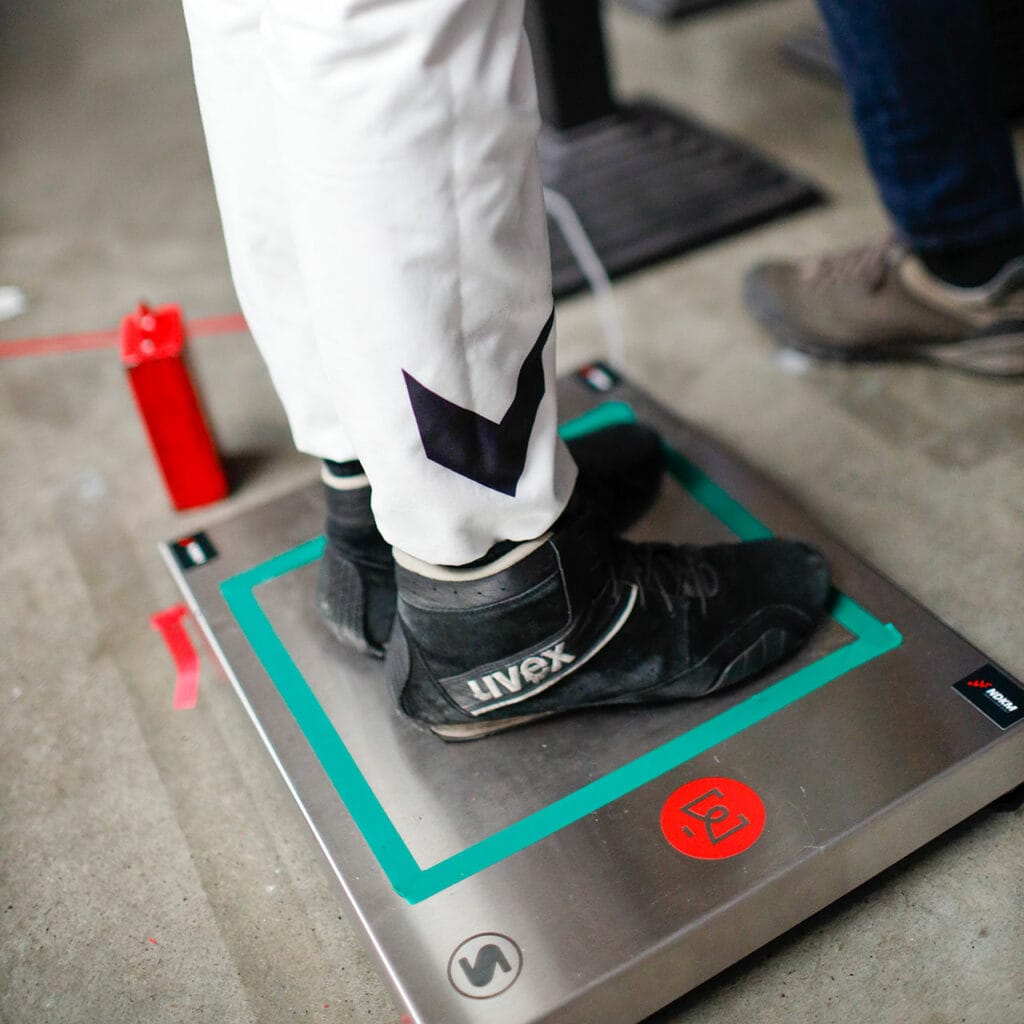
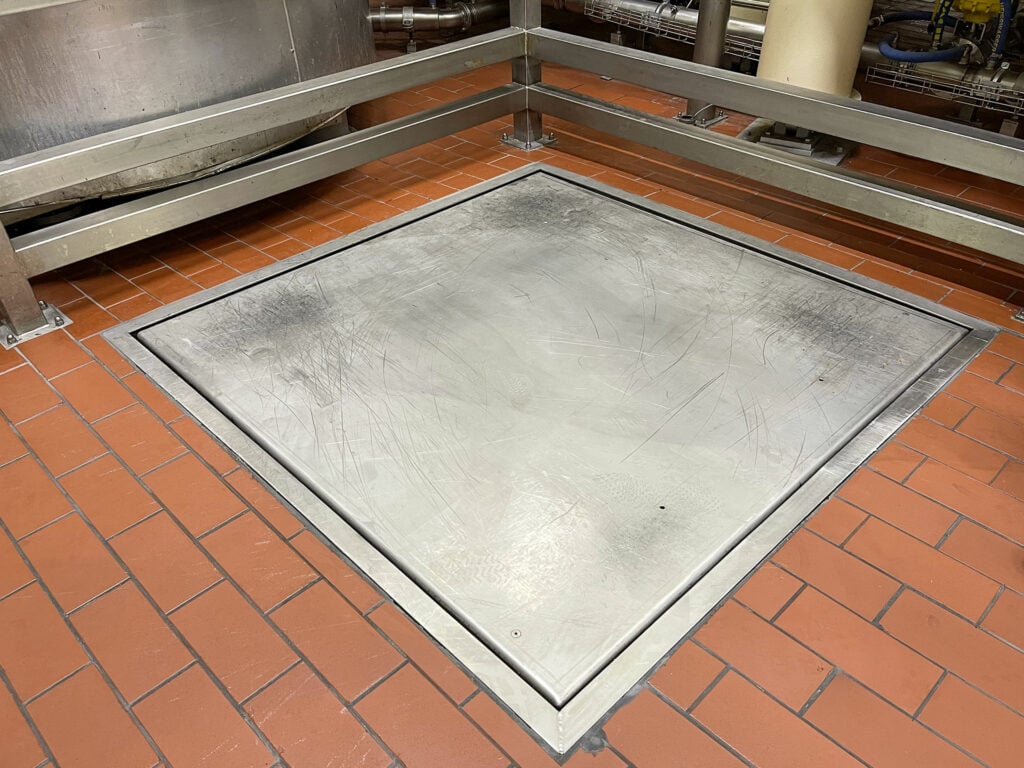
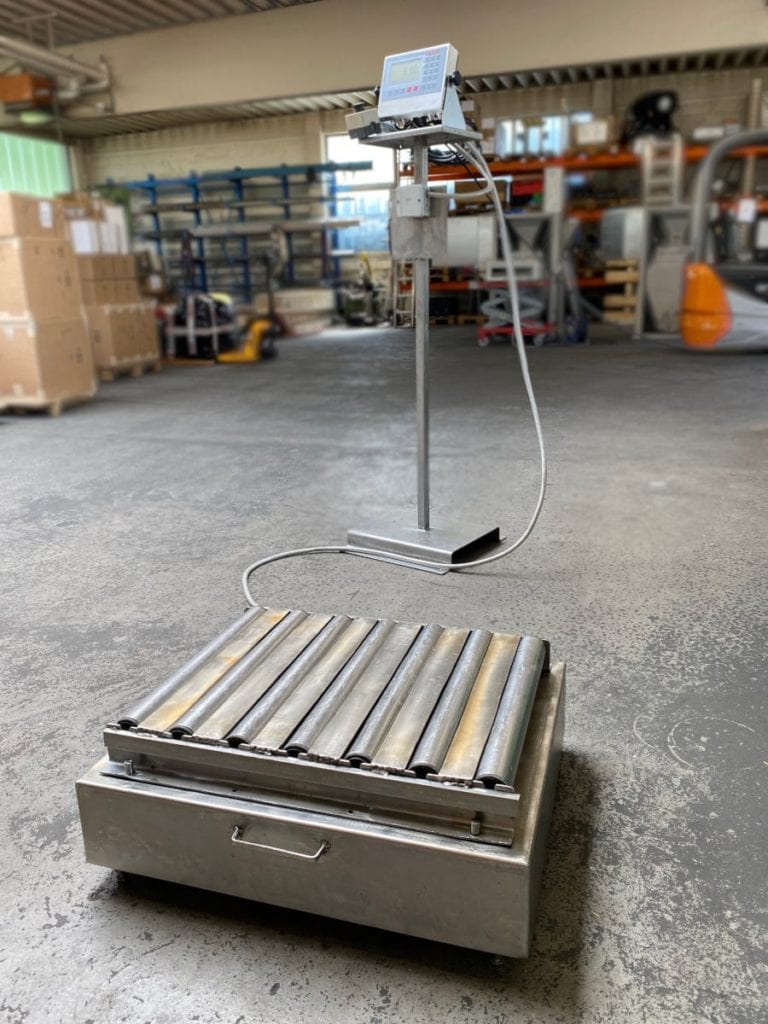
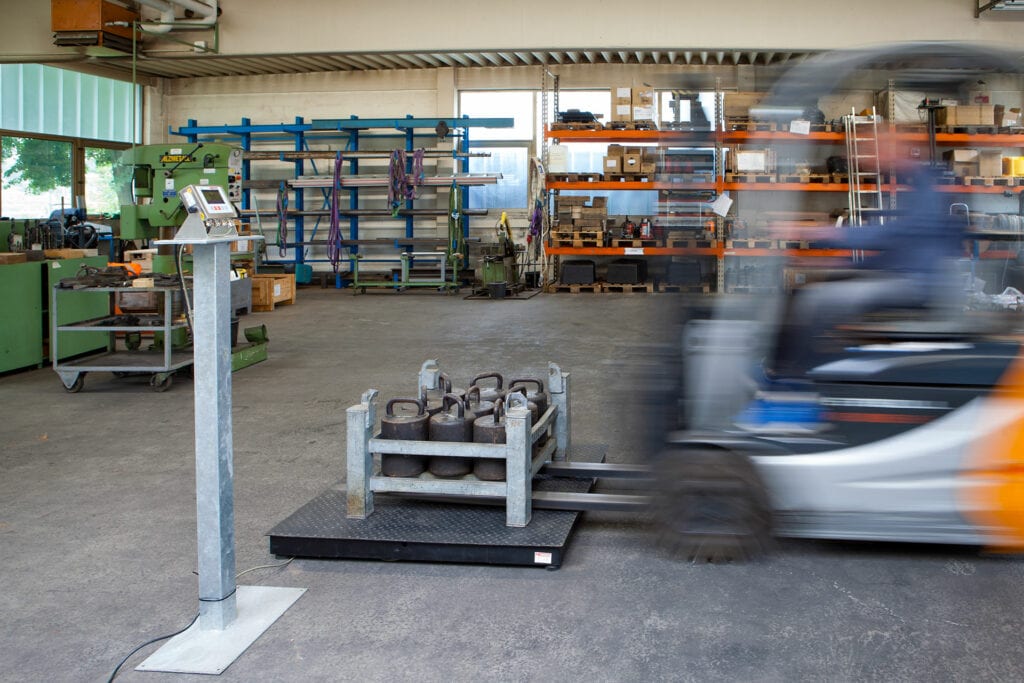
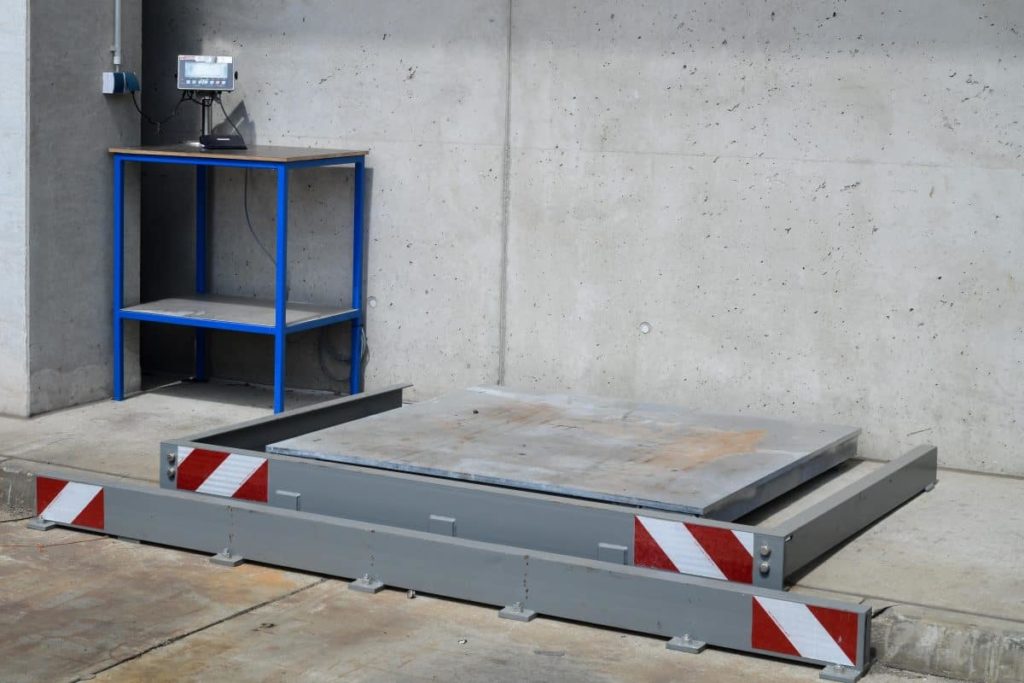
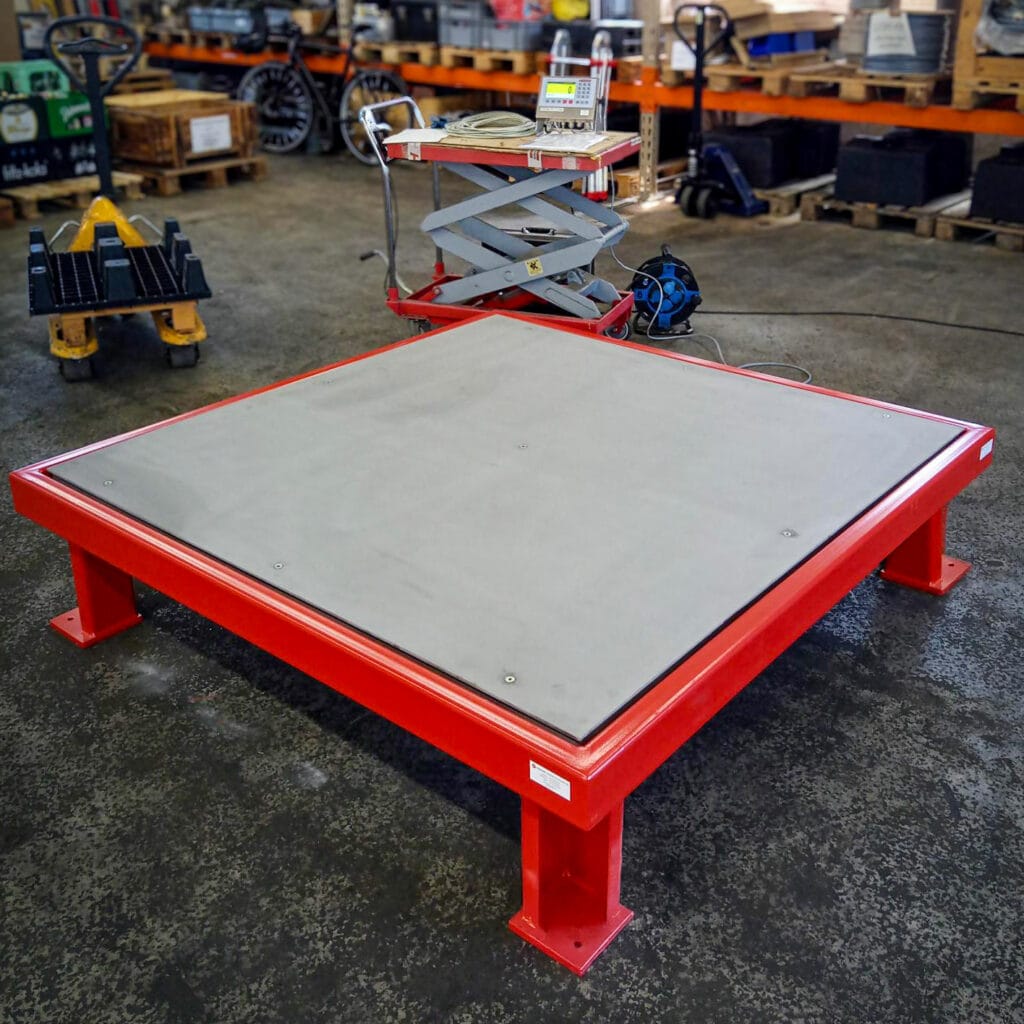
Typical areas of application
Platform and floor scales are used in almost all areas where weights need to be recorded. Important industry examples:
- Warehouse and logistics: Incoming goods inspection, shipping weight determination, weighing of pallets and pallet cages, often accessible for pallet trucks.
- Production and trade: quantity and quality control, counting weighing, checkweighing in production lines.
- Food industry and agriculture: Stainless steel scales for hygiene and corrosion protection, barrel scales for fermentation barrels, legal-for-trade versions.
- Retail: calibrated platform scales for price determination and filling stations, price-calculating scales.
- Municipal operations and waste disposal: Weighing of recyclables, waste garbage cans, big bags, often with receipt printer and material management software.
- Special applications: Gas cylinder scales with automatic load control, scales in automated processes with weighing terminals, barcode scanners and IT connection.
Weight classes, weighing ranges and digit increments
Platform and floor scales are available in a wide range of weight classes and weighing ranges – from compact parcel scales with a capacity of around 30 kilograms to heavy-duty floor scales that can carry 5,000 kilograms or more. As a rule, the larger the weighing range, the coarser the increment. For example, a 60-kilogram parcel scale can often measure to the nearest gram, while a 1,500-kilogram floor scale usually works in increments of 500 grams. For particularly flexible applications, many manufacturers offer so-called dual-range scales, which work with finer resolution in the lower weighing range and coarser measurements in the upper range. If a scale is used in retail for price determination, calibration is required by law – many models are therefore optionally available in a calibrated version.
Platform scales in the ESSMANN Scales Shop
Important functions and features
- Tare: Subtract empty weight from containers or pallets.
- Counting function: Determination of the number of identical parts.
- Limit value weighing: Optical or acoustic signals when exceeding or falling below.
- Data interfaces: RS-232, USB, Ethernet, WLAN – for connection to PC, ERP or printer.
- Display & operation: Backlit displays, large digits, touchscreens, scanner connections.
- Power supply: Mains operation or rechargeable battery for mobile use.
- Material & protection class: Stainless steel for hygienic areas, IP65+ for damp environments.
- Mechanical options: Drive-on ramps, U-shape, mobile pallet scales, built-in versions.
- Overload protection & calibration: Longer service life and measurable precision.
Buying advice on floor scales – what you should look out for
When selecting a platform scale or floor scale, you should consider several criteria in order to find a model that best suits your area of application. The weighing range and resolution should be selected so that they correspond to the heaviest item to be weighed and the desired accuracy – oversizing can impair the measuring accuracy. The platform size depends on the largest objects to be weighed, whereby a standard size of 1.2 x 1.2 meters is common for pallets.
If the scales are used in commercial transactions to determine prices, calibration is required by law, which is why it is often advisable to order a version that has already been calibrated. Also pay attention to quality and robustness – type approval, high-quality materials, suitable protection class and suitable temperature range are crucial for durability.
Only select the functions and connectivity options that you actually need, such as data interfaces, printers or a counting function. Rely onscale storesthat offer a reliable spare parts and calibration service to avoid downtime. Finally, the cost-benefit ratio should also be right – while a cheaper model is often sufficient for occasional use, high-quality scales that work precisely and last a long time are worthwhile for intensive use.
Informed buying in the scales store
Platform and floor scales are indispensable helpers in logistics, production, trade and agriculture. They enable precise, efficient and safe weighing – from parcels to heavy-duty pallets. With clearly defined requirements and expert advice, you will find the scales that are robust, precise and ideal for your area of application. In the ESSMANN Scales Shop you getplatform– and Floor scales up to 3,000 kg from top brands such as CORE, Soehnle, Dini Argeo and of course ESSMANN – including advice, service and optional calibration. Because that’s your advantage when you buy from the ESSMANN store. Thanks to our nationwide locations and our certifications we can offer all-encompassing Service around your scales offer: From life-prolonging maintenanceover calibrations and calibrationsup to modernizations and repairs. We won’t leave you alone with your scales.
If you still have questions: We will be happy to help you.

Jannek Laut
Distribution North
Jannek Laut has been with ESSMANN since 2021 and has been in close contact with a large number of customers ever since. He knows their requirements first-hand and finds suitable solutions, which he explains in a way that is complex, but always understandable, structured and friendly.
- +494084000413
- NORTH

